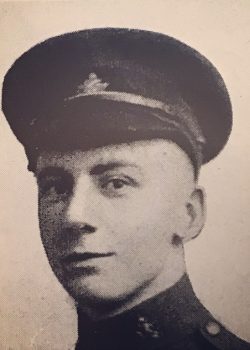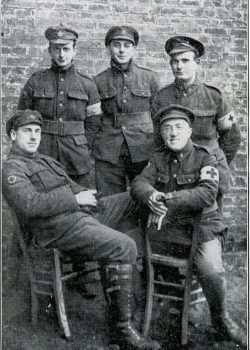Archives & Special Collections digitize diaries from the Great War
“…there happened something I will never forget as long as I live”
Words of war: The First World War diaries of Walter Eggertson
The events of May 25, 1917 – never forgotten by Private Walter Eggertson – endure in his diaries, recently donated to the University of Manitoba Archives & Special Collections.
As an uncensored first person account of the war, the diaries offer a candid perspective on the war and the transcription ensures their contents will be preserved for posterity, lest we forget.
Over a century later, these remnants of Eggertson’s service are fading, quite literally.
The ink and pencil marks are paling, as the diaries become more fragile. To ensure these memories are not forgotten, a transcription of both diaries is now available online.
Pomp under unusual circumstances
Following their harrowing experience at Vimy Ridge in 1916, many Canadian soldiers were exhausted, shell-shocked, and terribly homesick. Some sought a semblance or normalcy in their lives, and in some cases this would have been through their studies at Canadian schools and colleges.
A typical university graduation ceremony features hundreds of graduands in their institution’s gowns and hoods, with tasseled mortar boards on their heads. Valedictorians offer words of encouragement and advice to students going outward into the world.
But if you were already “into the world,” in a strange and hostile landscape, facing death and destruction at every turn, how would a graduation ceremony hold meaning?
In 1917, soldiers who left their studies at St. John’s College in Winnipeg, and who had completed their courses were eligible to be granted their degrees in absentia from Canadian universities. But some of their comrades decided to “reproduce in France the solemn ceremonies that were being carried out in Western Canada.”
The “Convocation at the Front” was described by St. John’s College alumnus Albert Roland Hall in the college magazine in August 1918. It came from a wartime diary discovered by Raymond Currie, dean emeritus of arts, while researching his father’s military career.








